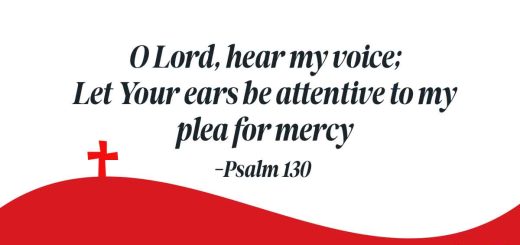The Morality of Dagga
The Constitutional Court’s decriminalisation of the possession of marijuana for private use by adults will raise questions about whether private cannabis-consumption is morally acceptable for Catholics.
With the element of legality effectively no longer a consideration in arguments proscribing its use, a good response to that question will require nuance beyond personal opinions, whether for or against.
The Catechism of the Catholic Church offers some guidance. “The use of drugs inflicts very grave damage on human health and life. Their use, except on strictly therapeutic grounds, is a grave offence,” the Catechism states, but without specifying any particular substances, or defining what exactly it means by “drugs”.
The reference to “therapeutic grounds” provides a clue that by drugs the Catechism might mean recreational drugs which are designed to alter moods. In their therapeutic use, such mood alteration would be a secondary effect, not the intended result of a drug’s consumption
And that lack of definition is a problem. The reference to “therapeutic grounds” provides a clue that by drugs the Catechism might mean recreational drugs which are designed to alter moods. In their therapeutic use, such mood alteration would be a secondary effect, not the intended result of a drug’s consumption.
But there are grey areas. Is there an objective moral standard governing, say, the sustained use of painkillers, sedatives or medication containing codeine? At which point do we determine that their use is morally objectionable?
And what of cigarettes or alcohol? The Catechism permits smoking of tobacco and consumption of alcoholic beverages, only counselling “temperance” and warning against “the abuse of food, alcohol, tobacco, or medicine”.
And what of cigarettes or alcohol? The Catechism permits smoking of tobacco and consumption of alcoholic beverages, only counselling “temperance” and warning against “the abuse of food, alcohol, tobacco, or medicine”.
But the Catechism provides no measures to indicate when such abuse is taking place. Indeed, it explicitly permits the temperate use of alcohol and even tobacco, but without setting thresholds.
While the body may well be a temple, the Church is not ill-disposed to people having a recreational drink or cigarette.
“If morality requires respect for the life of the body, it does not make it an absolute value,” the Church teaches. “It rejects a neo-pagan notion that tends to promote the cult of the body, to sacrifice everything for its sake.”
Whatever health concerns one may have regarding marijuana — and these must be taken seriously — the Catechism allows the temperate consumption of more health-damaging and more addictive substances, such as alcohol and cigarettes. It says nothing about the addictive properties of over-the-counter pharmaceutical products.
Whatever health concerns one may have regarding marijuana — and these must be taken seriously — the Catechism allows the temperate consumption of more health-damaging and more addictive substances, such as alcohol and cigarettes. It says nothing about the addictive properties of over-the-counter pharmaceutical products.
So can there be any licit moral objections to the temperate consumption of marijuana (which, unlike alcohol and tobacco, even has medicinal properties) on grounds of health?
However, unlike tobacco and small amounts of alcohol, marijuana has mind-altering properties, even if consumed in small doses. Is it objectively sinful to use mind-altering substances, including alcohol, cannabis and certain pharmaceuticals — other than for therapeutic or medicinal purposes?
One may regard the altered states of consciousness produced by alcohol and cannabis alike as sinful, or as not meeting the definition of sin. The question we must ask is: Does their use do harm and does it offend God?
One may regard the altered states of consciousness produced by alcohol and cannabis alike as sinful, or as not meeting the definition of sin. The question we must ask is: Does their use do harm and does it offend God?
Whether or not one considers the occasional state of inebriation or being high as sinful in themselves, the consumption of both alcohol and marijuana can give cause for sin. For example, driving while under the influence of alcohol or marijuana (or other impairing drugs) is objectively sinful as it endangers the safety of others. The Church’s response to all drugs — cannabis, alcohol, tobacco — must also take into consideration their social effects. Is marijuana a gateway to more damaging drugs, or does its decriminalisation normalise the use of more dangerous drugs?
The Church’s response to all drugs — cannabis, alcohol, tobacco — must also take into consideration their social effects. Is marijuana a gateway to more damaging drugs, or does its decriminalisation normalise the use of more dangerous drugs? Does alcohol lead to violence in homes and in public? Does cigarette smoke cause ill health in those who consume tobacco and in those who breathe in secondary smoke?
These questions, and others like them, must guide us as we discern the relative moral objections to marijuana and other substances. Little good is served by making definitive pronouncement for or against the moderate, recreational use of cannabis, alcohol, tobacco or pharmaceuticals. But much good can be done by issuing warnings about the effects of their consumption.
As in cases of routine excess of alcohol consumption, we must be alert to possible detrimental life- or personality changes in those who use cannabis, for sin might reside not in the act of consuming these drugs but in the consequences of that consumption.
Whatever the answers, for Catholics the emphasis must be on temperance in all things.
- The Look of Christ - May 24, 2022
- Putting Down a Sleeping Toddler at Communion? - March 30, 2022
- To See Our Good News - March 23, 2022




